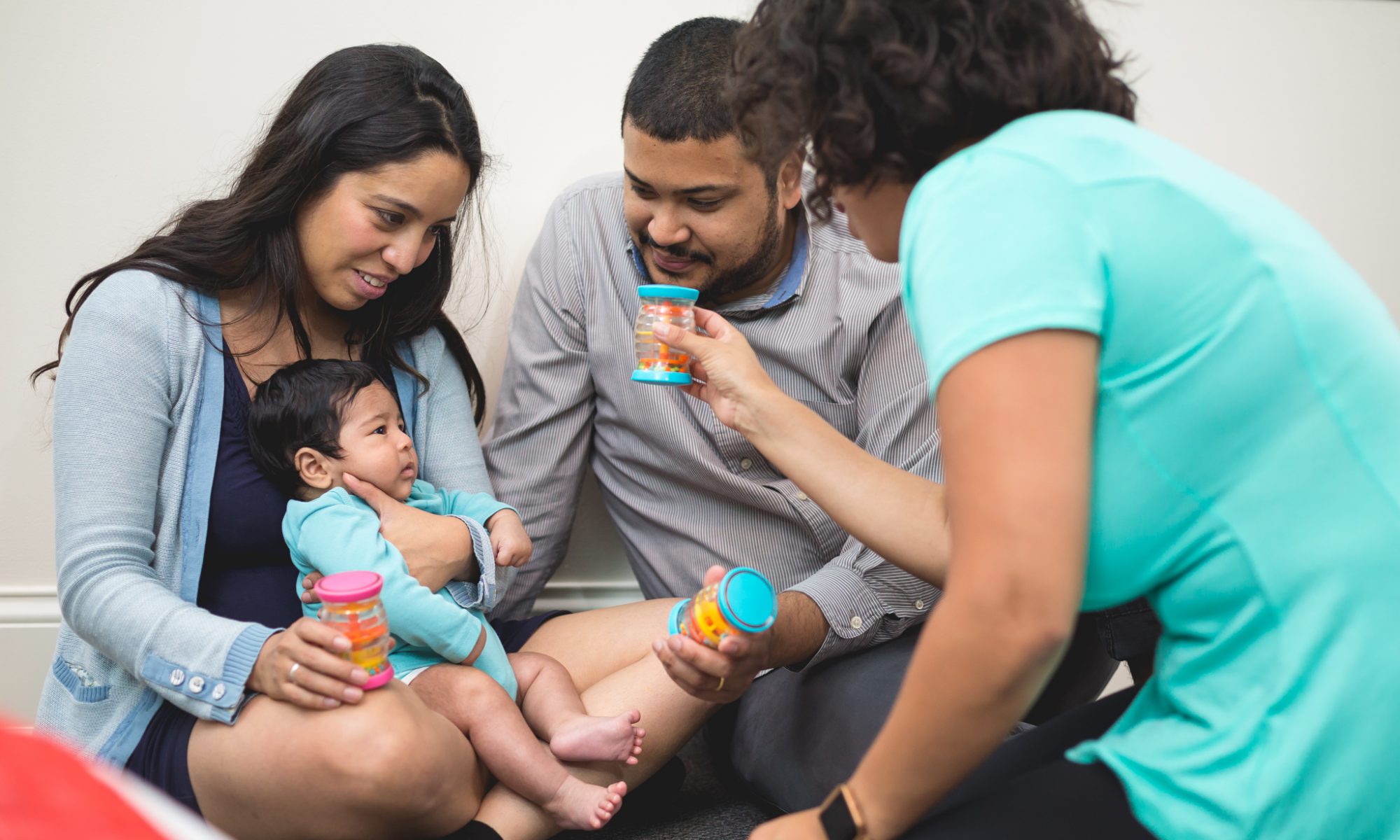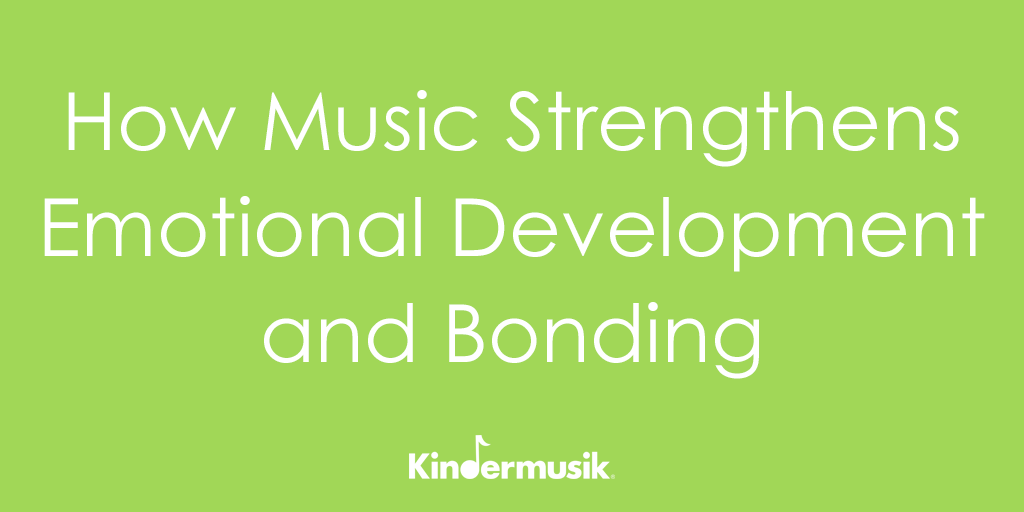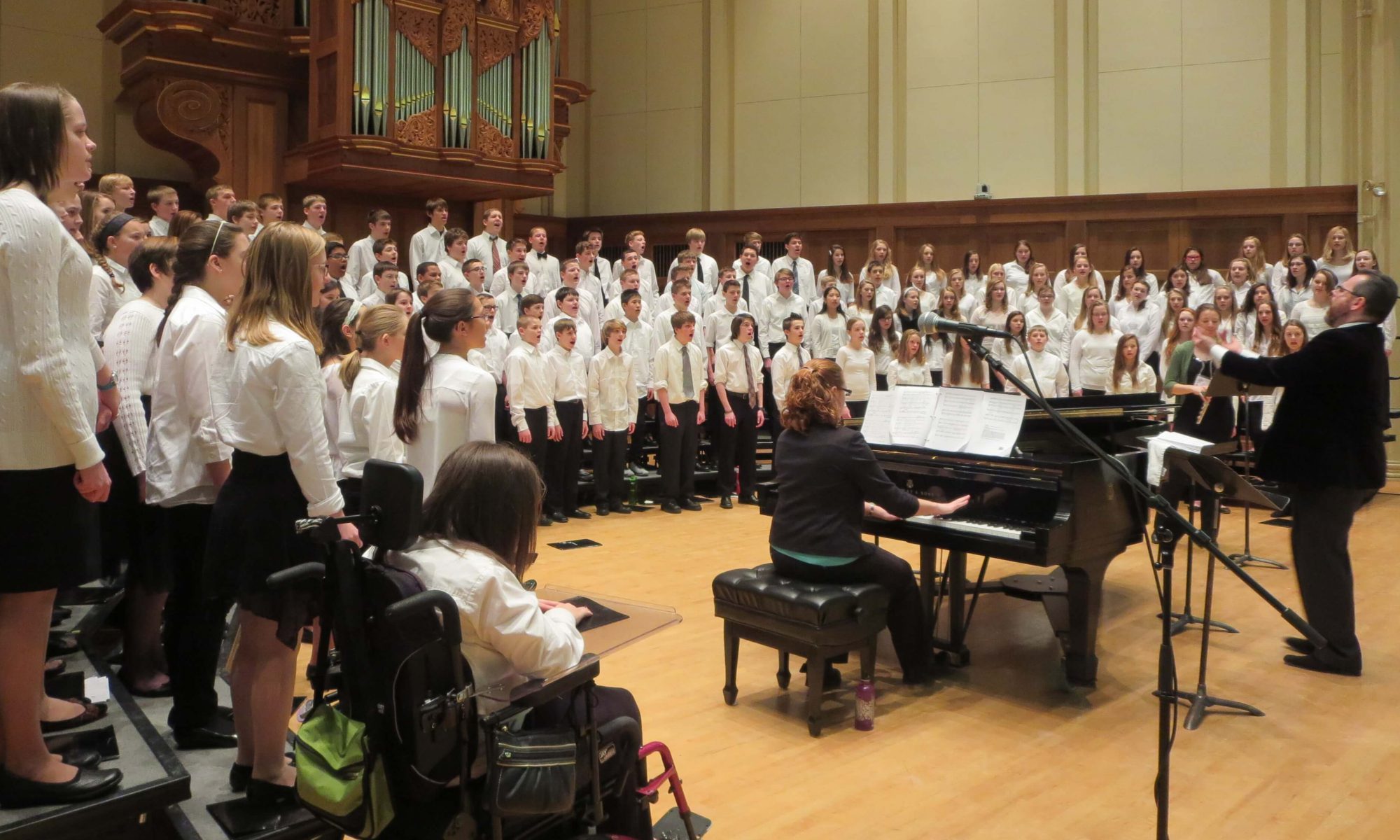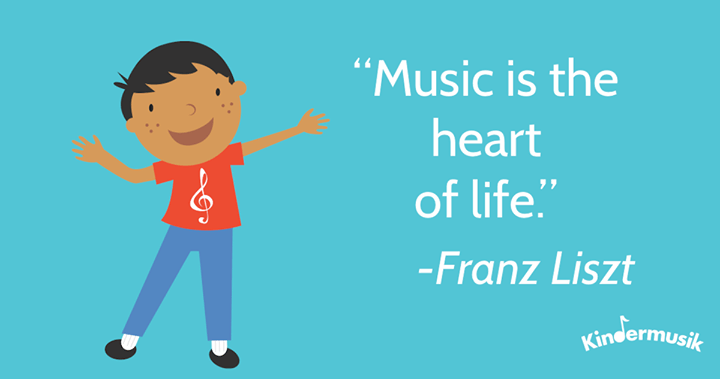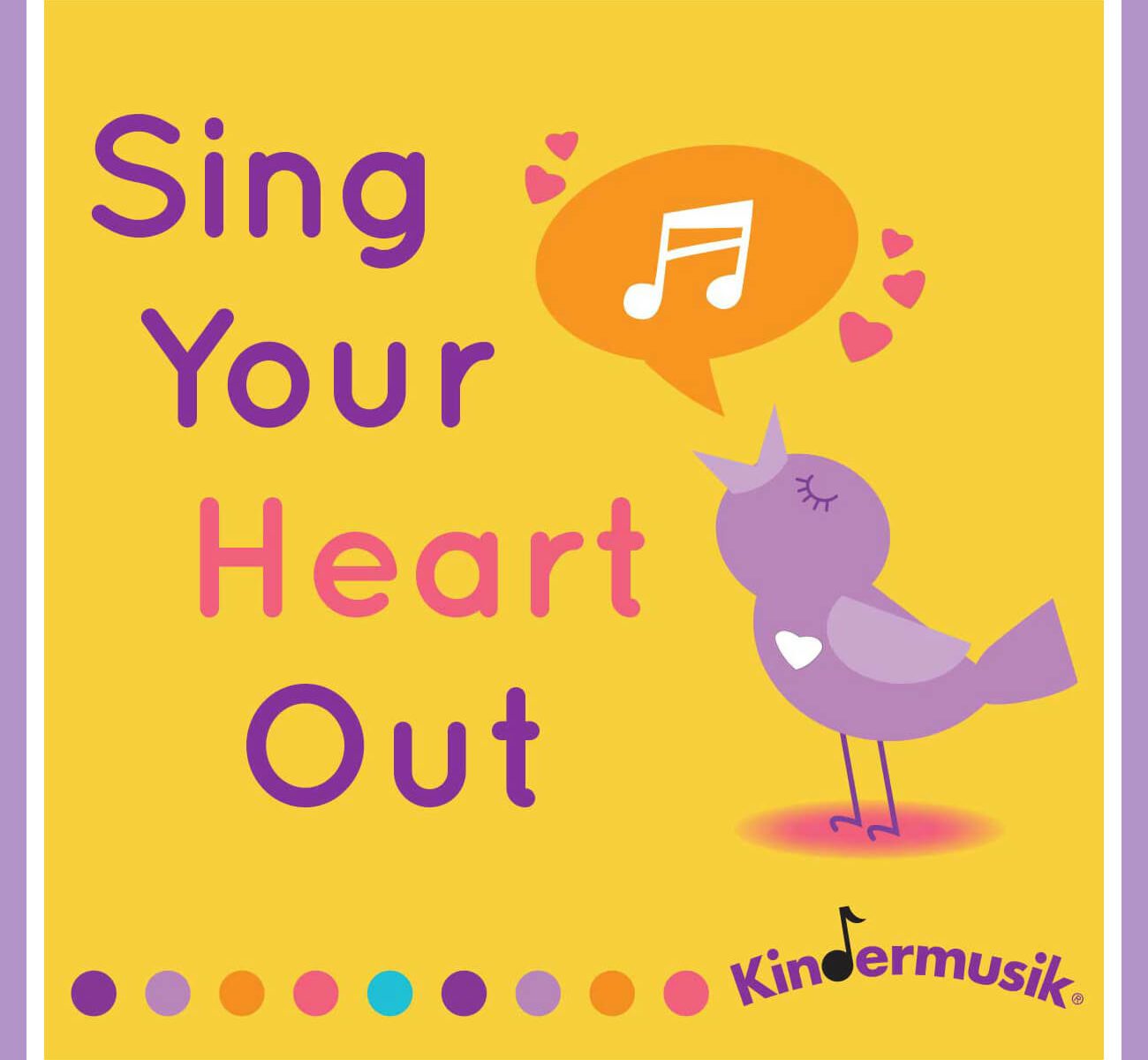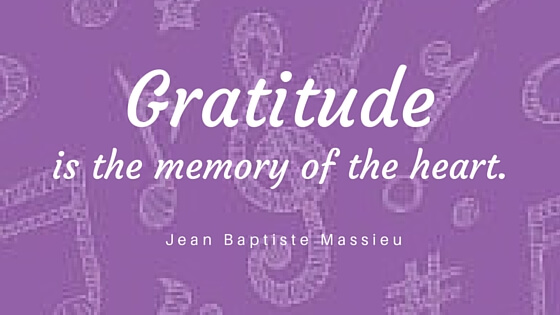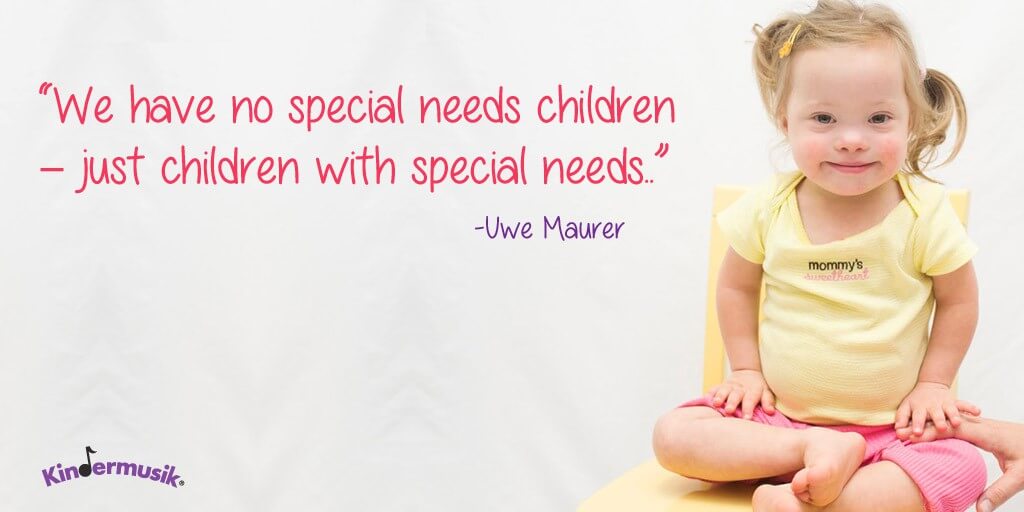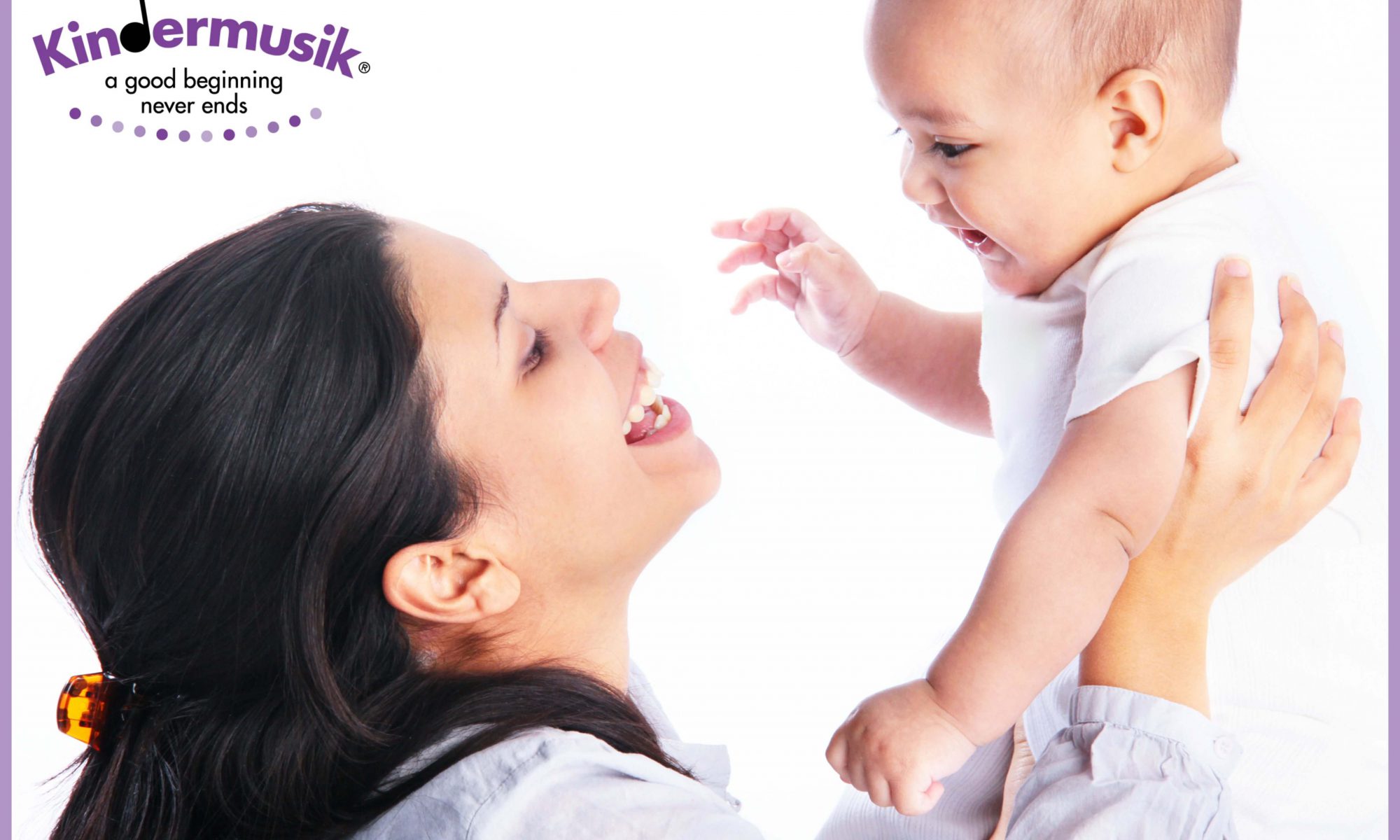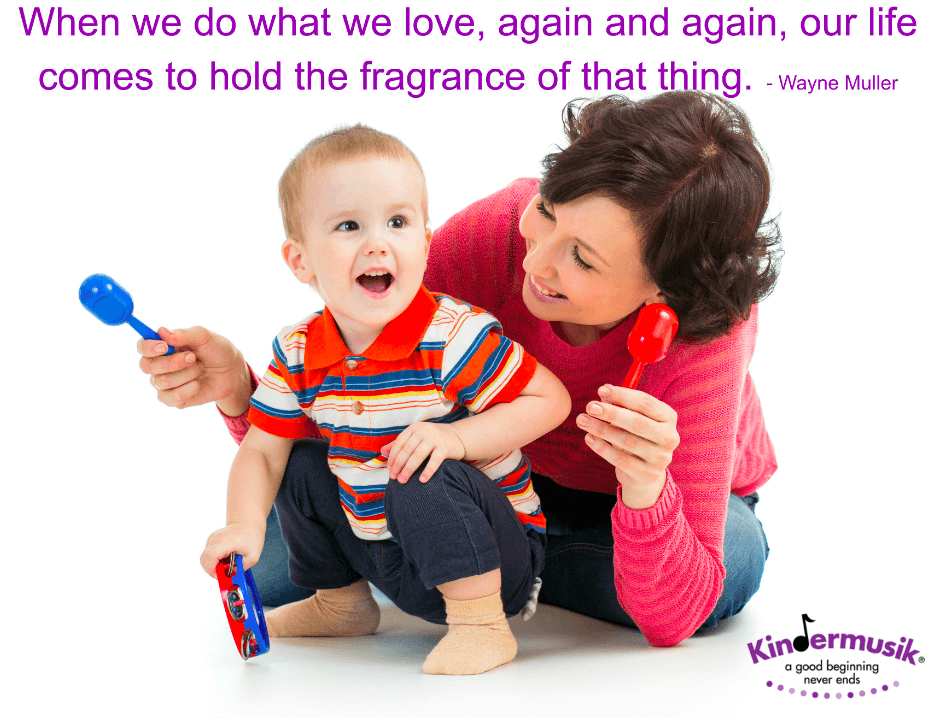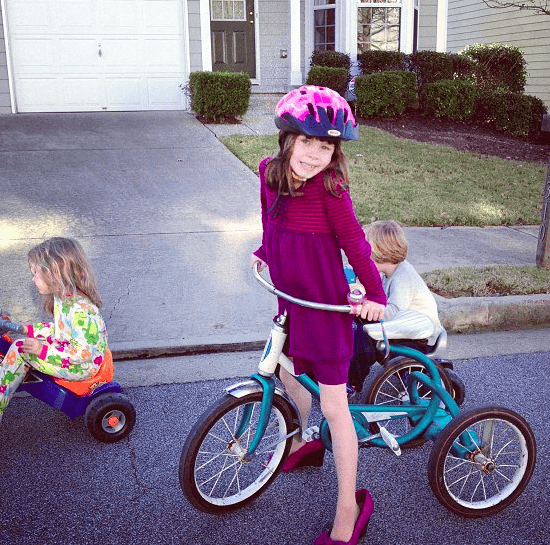Parents who seek information about what is best to do for their child—parents like you!—are relieved when an idea can be described as definitively true. It’s even better when that idea involves something that is easy and fun for children and caregivers to do together.
How Music Strengthens Emotional Development and Bonding
Music moves us. It’s a plain and simple truth, common to human beings all around the world since time began. In fact, it’s happened to you. You hear a certain song, and it instantly and vividly takes you back to a specific time, place, and memory. We know that there’s a deep-seated and innate response to music, even in very young children. And when you intentionally and consistently make music a part of a child’s life, music will strengthen a child’s emotional development and bonding with the loving adults in his/her life.
Continue reading “How Music Strengthens Emotional Development and Bonding”
Why Do You Sing?
[vc_row][vc_column][vc_column_text]

[/vc_column_text][/vc_column][/vc_row][vc_row][vc_column][vc_column_text]I teach my students that it’s the conductors job to make others musically powerful. This concept was crystalized for me by Ben Zander in his TED Talk. If you haven’t watched it, you should! As conductors, we develop a vision and inspire others to realize that vision.
When I work with choirs, I tell it like it is. I tell them what I expect – and to paraphrase my friend and fraternity brother, Karl Paulnack, from his Welcome Address to the parents of incoming Boston Conservatory students – I expect them to save lives with their music.
The Wisconsin Middle Level All State Choir was no different. They sang! They gave away their collective voice, honoring the composers, each other, and the audience. I told them – you never know whose life you might change with your music. I believe that. I believe that there could be someone in that audience whose life is at the crossroads – and honest and selfless art given freely by a group of emotionally connected middle schoolers has the power to pull them down the road that leads to life.
We sang! But we also talked about the music. We talked about the historical context of McCartney’s “Blackbird” – so relevant today. Not about a blackbird, friends. Sir Paul wrote this in response to the riots occurring in ’68 after Dr. King was assassinated. And the middle school musicians ate up this information. You could have heard a pin drop when I talked to them about this.
I have started taking a moment at festivals to ask students why they sing – particularly in choir. One young woman, Scedra (pronounced Say-dra – her name was a combination of the initials of grandmothers and great grandmothers) particularly touched me. Scedra was born 2 months premature. She fit in the palm of your hand. Her father’s wedding ring could slide up her arm to her shoulder with room to spare. Scedra is in a wheel chair. She put her hand up to share why she sang….[/vc_column_text][/vc_column][/vc_row][vc_row][vc_column][blockquote cite=””]“I sing because it makes me feel like flying. I don’t feel like I’m in my chair. It’s like I’m not disabled anymore.”[/blockquote][/vc_column][/vc_row][vc_row][vc_column][vc_column_text]I wept. I’m weeping now typing this. 149 of her new friends instantly applauded her. The smile on her face eclipsed her chair. Scedra is often (at first sight) defined by her wheelchair, but in that moment, she was simply and beautifully a young woman overjoyed to be making music with her new friends.
Scedra and a host of her colleagues shared from their hearts in a room full of people they had just met. Music did this. Music created this place that allowed these people to be who they were (are!) without fear of judgment.
And that is music’s power.
These young men and women changed my life and for that I will be forever grateful.
Thank God, the universe, and all good things for music.[/vc_column_text][/vc_column][/vc_row]
New Thoughts for a New Year: Music for Music’s Sake
Happy New Year! It is my great honor to join the Kindermusik team as the editor of Minds on Music Blog. Music has and continues to be my life’s passion, and I am excited to curate a useful resource on behalf of this wonderful organization. Learn more about me here.
We often read that music has tremendous collateral benefit in other subject areas, such as math and English. This is quite true, with plenty of research to back this up. But music possesses intrinsic worth, providing a host of benefits to our human condition. In fact, last year the US Senate voted to list music as a core subject in the Every Child Achieves Act. This recognition was a huge win for music educators and students alike. We’ll explore some of these intrinsic benefits in depth this year, but before we do, here’s a brief list exploring involvement in music for music’s sake.
Continue reading “New Thoughts for a New Year: Music for Music’s Sake”
Calm Your Baby by Singing
If there was something that could keep your baby calm for twice as long as anything else, would you use it? New research from the University of Montreal has discovered the secret… singing to your baby!

At Kindermusik, we could be considered something of an expert on not just what to sing to your baby, but also how to sing to your baby. (And don’t panic. Our suggestions have nothing to do with voice lessons or singing in public.) Since we’re also all about making parenting a little easier and a whole lot more musical, here are some of our best tips for what and how to sing to your little one. You can thank us later for being able to enjoy twice the amount of calm!
What to sing to your baby
You Are My Sunshine*
Love Somebody*
Everybody Loves Baby*
Skinnamarink
May There Always Be Sunshine
Golden Slumbers
Tell Me Why
FREEBIE! Download the songs marked with an asterisk (*) for free here. Other songs are available for purchase here.
How to sing to your baby
- Even if you’d never sing a solo in public, remember that your voice is the most beautiful sound in the world to your child.
- Forgot the words? No problem. Humming works too!
- While standing, gently sway to the steady beat as you sing. The combination of your singing and the side-to-side pendulum-like motion is very soothing.
- Use both the power of music and intentional touch. After bath time, incorporate a little infant massage as you sing to your baby.
- Sing in the car. No one will ever know that it’s the third time around singing “Skinnamarink” because it’s your favorite song too!
- Cuddle your baby close and rock together. Your little one will love feeling the reassuring vibration of your vocal chords and the gentle thump of your heartbeat.
Looking for other ways to calm your baby? Come visit a Kindermusik class and learn from an early childhood expert.
Shared by Kindermusik educator and award-winning program owner Theresa Case, who has loved every opportunity she’s had over the past 20-plus years to encourage parents to sing and bond with their babies.
7 Ways Music Teaches Kids Thankfulness
Music changes us. Makes us better. Helps us think. Gives us a way to express ourselves. Lifts our spirits. Impacts our memory. Gets us moving. Boosts self-confidence. Raises IQ and academic potential. But music classes like Kindermusik can also instill values, perhaps one of the most important values being that of gratitude.

The root of gratitude is in our emotions, and there’s no better tool for getting us in touch with our feelings and emotions than music. So how exactly does a music class inspire gratitude?
- Music classes are a group experience and as such, teach kids to be appreciative of each individual’s contributions to the the group.
- Music classes are a happy experience, and out of that happiness often comes a spontaneous, straight-from-the-heart expression of gratitude from children.
- Music classes are an interactive experience, bringing parents and kids together in class and/or at home and strengthening the loving bonds between family members.
- Music classes are an enlightening experience, helping all of us to affirm, celebrate, and be grateful for each child’s own unique gifts.
- Music classes are a social experience that gives kids a chance to develop friendships that they will appreciate for a long time to come.
- Music classes are a delightful experience, creating special memories that we will hold in our hearts forever.
- Music classes are an inspiring experience, making us thankful for the little things – a smile, a hug, a together moment, and a song in our hearts.
Contact your local educator to experience how music teaches kids thankfulness… and so much more!
Moments Worth Waiting For: Music & the Child with Special Needs
First smile. First time sitting up. First steps. First time saying “mama” or “dada.” Oh yes. Every parent can create a list of enduring moments worth waiting for and savoring.
In the Kindermusik community, we concoct our own lists, too, and our collective heart for children and families overflows with the memories of how music reaches children of all abilities.
Take Filomena. Music helped to create so many moments worth waiting for:
Then there are Meghan and John, whose stories remain rooted in the heart of Kindermusik Maestro educator, Christa Beck, who has a passion for incorporating children with special needs into Kindermusik classes:
Meghan’s Moment Worth Waiting For: Early in my Kindermusik career, Meghan a little girl with Down syndrome was working so hard to walk. She was approaching age 2. During class one evening, Meghan walked across the room for the first time. The entire class began to applaud and cheer. Her Mom was in tears and still talks about that moment to this day.
John’s Moment Worth Waiting For: During a preschool age class, I had a mostly non-verbal preschool boy with autism. After two weeks of repeating an activity, the third week again we were passing around a rooster puppet and singing “Kukuriku.” John sang those notes clear and on pitch. It was the most he had sung (or spoken) around other children.
Every child impacts us in profound ways because every child is profoundly beautiful, including a little boy named Lucas with brittle bone disease, whose story Kindermusik educator Betsy Gurske shares:

5 benefits of music for children with special needs
Yes! These moments serve as reminders about the personal power of music on a child’s everyday life. However, scientists, music therapists, and Kindermusik educators also know how the research backs up the moments.
- Playing instruments supports fine motor skill development
- Moving to a steady beat encourages gross motor skills development.
- Playing music in a group increases empathy and teaches other key social-emotional skills, such as turn-taking, listening, and responding.
- Music can relieve stress, decrease blood pressure, and even shows to help with the reduction of pain.
- Music gives verbal and non-verbal children a way to express thoughts, feelings, and ideas.
Do you have a child with special needs? Come visit a Kindermusik class together and experience your own musical moments worth the wait!
When It Comes to Baby Talk, Moms Matter
Sometimes it seems that a mother knows what a child is thinking and feeling even before that little one can verbally communicate. That’s because even brand-new moms are somehow inexplicably endowed with this special ability to be tuned in to their little one’s thoughts and feelings. Some may call it maternal instinct. It might be better called the “mom thermometer.” Dr. Elizabeth Kirk, from the University of York, called it “maternal mind-mindedness” or “tuning in.”
What kind of “reading” a mom gets on her “mom thermometer” then often translates into not only she cares for her baby, but more importantly to Dr. Elizabeth Kirk and her research team, this instinctive tuning in is the basis for how a mom interacts and talks to her little one. Dr. Kirk’s study found that a “…a mother’s ability to tune-in to her baby’s thoughts and feelings early on helps her child to learn to empathise with the mental lives of other people. This has important consequences for the child’s social development, equipping children to understand what other people might be thinking or feeling.” Pretty amazing!

Well since we here at Kindermusik are all about using music, movement, and the weekly Kindermusik class to help make great parenting a little easier, we have some “talking points” for all parents as you are interacting with, tuning into, and bonding with your babies and young toddlers by identifying and labeling their emotions.
Emotional Talking Points
When Mommy sings your favorite lullaby, you feel all better.
You love cuddling with Daddy, don’t you?!
I can tell when you smile that you are happy.
Are you feeling frustrated because you can’t fit that into the box?
Does it make you feel upset when your beans fall off your spoon before you get them in your mouth?
Emotional Activity Ideas
- Listen and/or dance to “emotional” music. (You can define what “emotional” means at any given moment.) Talk to your child about how the music makes them feel.
- Use simple songs or rhymes at routine points throughout the day – waking up, getting dressed, going down for nap, bath time, or bed time. The songs or rhymes can not only help the transitions go more smoothly, but you can talk to your baby about their reaction. Upset? Happy? Sad? Frustrated? Contented?
- Deliberate eye contact will help you tune-in more to your baby and his/her emotions. Look into their eyes as you talk to them and love on them.
- Take time for some gentle baby massage. This is a great time to “converse” with baby and make that all-important eye contact.
- Sing or hum a lullaby as you rock your child. You might use rocking as a nap time or bed time ritual. But rocking is also a great time to really focus on your child, saying “I love you,” and getting a good “read” with your “mom (or dad) thermometer.”
We get that some of these examples might sound just slightly cheesy when written out, but don’t worry – they won’t come across as cheesy when it’s just you and your little sweetie one-on-one. And later on, when your child is growing to be happy, self-confident, thoughtful, and sensitive towards others, you can give yourself a big pat on the back. It was your intuitive connection, tuning in, verbalization, and yes at times, one-sided conversations, that made all the difference.
Want more insight into your child’s social-emotional development? Follow us on Pinterest!
Shared by Theresa Case who has loved every minute of helping parents connect with their children through music at Piano Central Studios in Greenville, SC, for over 20 years now.
Why Your Child Needs Routines and Rituals
Routine. Ritual. Often the words are used interchangeably, but they have slightly different nuances. Routines are every day. More commonplace. Things we do at the same time in the same way. Rituals are special and meaningful, memory builders, if you will. They have purpose and are carried out with intentionality. Your child needs and thrives on both. Here’s why.
 Routines give your child predictability, and with predictability comes a great sense of security for your child. Routines are the defining structure of a day or a week and provide a certain organization that prevents chaos. They are comforting and reassuring, helping your child know what to expect.
Routines give your child predictability, and with predictability comes a great sense of security for your child. Routines are the defining structure of a day or a week and provide a certain organization that prevents chaos. They are comforting and reassuring, helping your child know what to expect.
Rituals define us. They help us bond and connect. Rituals are enjoyable and repeated shared experiences – a certain way you celebrate life’s happy occasions or that special way you put your child to bed each night. They contribute indelibly and inextricably to a happy childhood, making for a lifetime of the best of memories.
Here’s a good example of the difference between routines and rituals. Attending a weekly Kindermusik class becomes a favorite routine, something you and your child both look forward to. You have a familiar and predictable structure to each week’s class (with a little new coming in with new themes, songs, and activities), and the same wonderful Kindermusik educator year after year.
What you learn in class and the Home Materials you receive then become the inspiration for memorable, heart-warming, bonding rituals at home. Like the toe-tickle you do each morning to chase away the morning grumpies. The way you cuddle up and read your Kindermusik story before naptime. The happy dance you do around the kitchen together when daddy walks in the door. Or the sweet lullaby that calms and quiets your child before bedtime… the very same one he’ll sing to his own little one someday.
Routines. Rituals. They are beautiful things, especially when they are set to music.
Make Kindermusik a part of your weekly – and daily! – routine. Find a class near you today.
Shared by Theresa Case whose award-winning Kindermusik program at Piano Central Studios in Greenville, SC, has been helping families enjoy delightful routines and special rituals for over 20 years now.
Dancing Today Leads to Bike Riding Tomorrow
 It’s coming, one day soon (if it hasn’t already). Your child will want to learn how to ride a bike—the big kid kind. There will be spills and thrills for both of you as your helmeted child learns how to balance and maintain the right rhythm and tempo for pedaling and braking. Shouts of “Don’t let go!” “I need a push!” and “Arggg!” will be commonplace until that moment when it all comes together and your child successfully rides down the street.
It’s coming, one day soon (if it hasn’t already). Your child will want to learn how to ride a bike—the big kid kind. There will be spills and thrills for both of you as your helmeted child learns how to balance and maintain the right rhythm and tempo for pedaling and braking. Shouts of “Don’t let go!” “I need a push!” and “Arggg!” will be commonplace until that moment when it all comes together and your child successfully rides down the street.
You might not realize it but Kindermusik helps prepare you and your child for this moment (and not just by supplying you with calming music to hum during the process!). When we dance the waltz and the jig or clap and tap a three-beat pattern while listening to a waltz, your child not only builds important musicianship skills but also develops and refines motor coordination skills. This awareness of meter and individual beats in two-beat and three-beat musical patterns builds a sense of rhythm that will help your child play an instrument, dribble a ball, swim with consistent strokes, and yes, even pedal a bike.
Kindermusik Tip: Dance with your child to all kinds of music. Go ahead: Waltz together. Do the Hand Jive. Try the Electric Slide. There is no right or wrong way to dance together. Plus, it’s good for you both!
Take a look at how this sweet Kindermusik child dances with her doll:
[youtube] https://www.youtube.com/watch?v=3Fhs8xqkn6Q [/youtube]
Download this free mini-playlist of some of our favorite Kindermusik dance songs.
Contributed by Lisa Camino Rowell a freelance writer in the Atlanta area.

